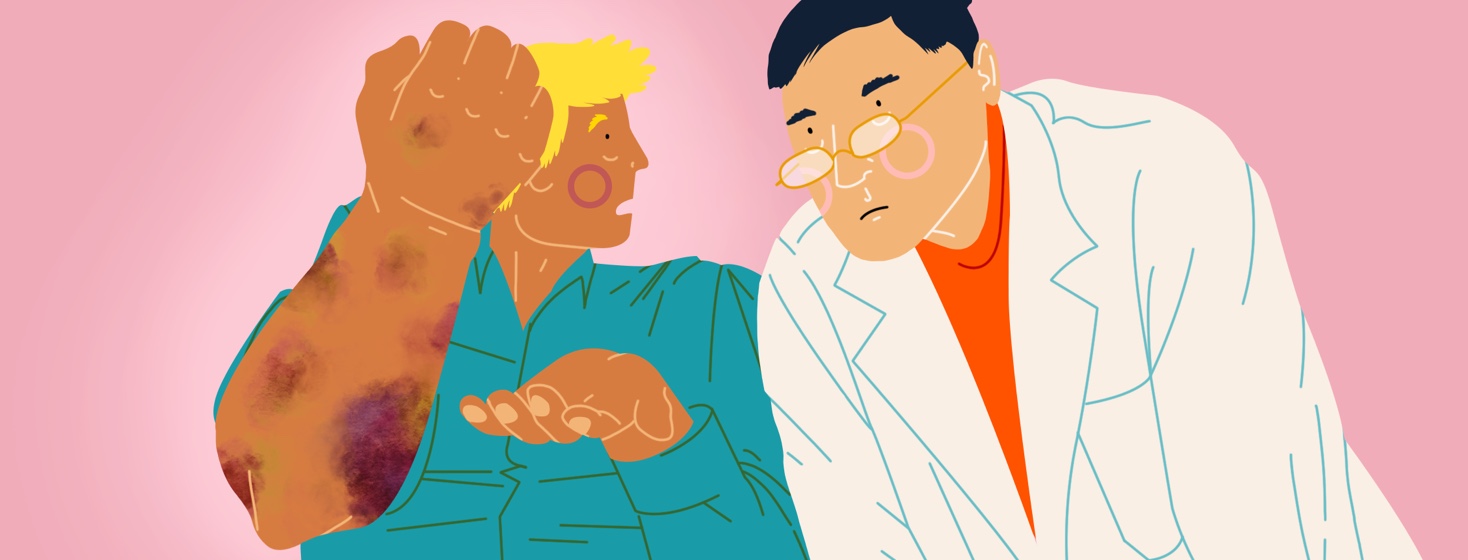Bruising and Crohn's Disease
Today I wanted to talk about another one of those extra-intestinal manifestations of IBD we often neglect to mention and that's bruising.
Of course, we all bruise from time to time (or more so if you're as clumsy as me – I don't think I can blame my Crohn's for that!) but those of us with IBD might find ourselves bruising more than the average person. So I thought I'd share why this might be and my experiences.
Why do Crohn's and UC patients bruise more easily?
Firstly, it's important to say that if you suddenly find yourself bruising more easily, you should always speak to your doctor. Although there might be a few reasons why those of us with Crohn's might bruise more easily, it can also happen if you have issues with your blood, such as anemia or a change in white blood count.
Some medications we take can put us at more risk from this so it's important to be aware and keep on top of your regular blood tests to rule this out.
The side effects of taking steroids
The most obvious reason those with IBD might struggle with bruising is taking steroids, especially in the long-term. Steroids can thin the skin and this can cause you to bruise more easily when you might only notice a slight knock.
This is something I discovered when taking Budesonide. I knocked myself on my son's stair gate and while it did feel a little sore, I wasn't expecting a giant purple bruise the next day. After some research and chats in Facebook groups, I realized that this is a common thing that people went through and, touch wood, it doesn't seem to be anywhere near as bad since I've stopped Budesonide.
I also spoke to others who noticed they bruised more easily on other medications such as biologics such as Humira, although I haven't found much evidence or research as to why that might be.
Nutritional deficiencies because of IBD
It's also worth noting that lots of us with IBD have low Vitamin B12, Vitamin D, and iron, which are common nutritional deficiencies. All of these vitamins and minerals can aid healing so if a bruise takes a little while longer to heal, that could be the reason.
Finally, it seems to be one of those "who knows?" questions that those of us with IBD (or our doctors) don't seem to know the answer for. Frustrating, but if your doctor reassures you that there's no medical reason for it, try not to worry too much.
Tips for dealing with bruising
So, once you've figured out the cause, let's look at how we can help deal with annoying bruising.
One of my top tips for dealing with bruising is using arnica cream-this is a lifesaver! When I apply it a few times a day, I find my bruises heal much more quickly.
Another tip for dealing with bruises if they're particularly painful is heat and ice therapy – so using heat patches or a bag of ice on the bruise. Finally, I take a multivitamin which hopefully helps me keep on top of any nutritional deficiencies which might be making my bruising a little harder to heal.
I hope this has been useful. I'd love to hear your experiences: do you bruise much? Have you found a reason or is it just one of those things you've got used to?

Join the conversation